As some of you may already know, we very sadly and unexpectedly lost our gorgeous boy, Kobie, on the 10th of January.
It was all incredibly sudden, and we had to make the heartbreaking decision to put him to sleep in the space of an hour.
As a family, we’re taking one day at a time and doing our best to help Bailey adjust to the new normal without his best friend by his side.
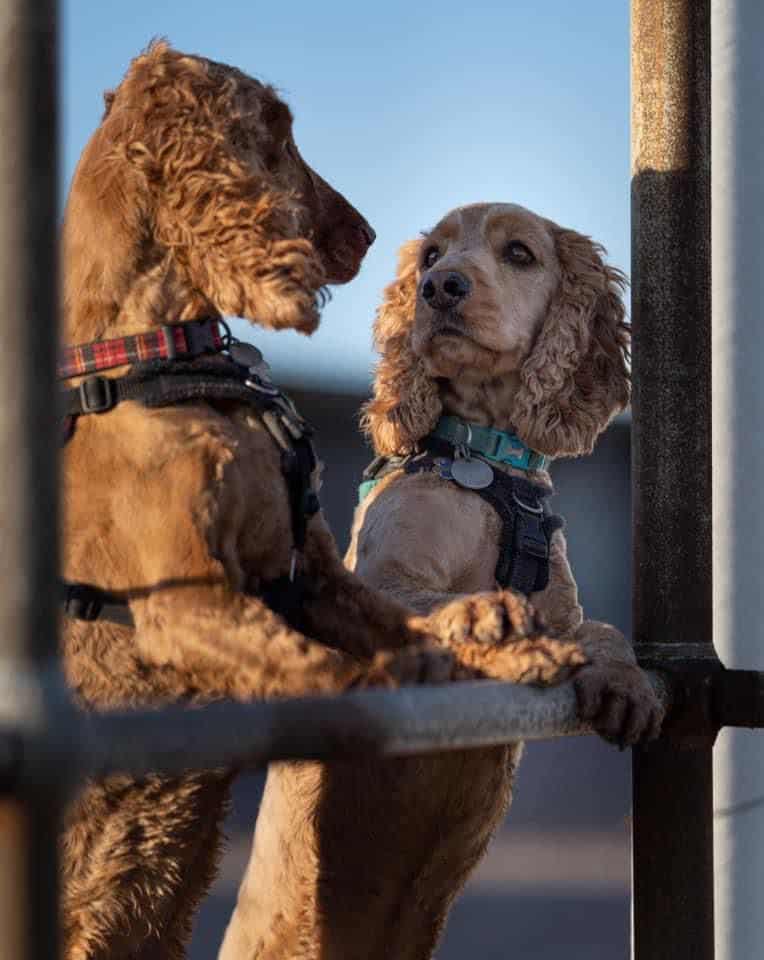
So, as heartbreaking as this feels to write, I wanted to share my thoughts on how to cope with the loss of a dog and how to help another dog cope too, if you’ve been through similar, I’m sorry you’ve had to and I hope this blog may help you understand more your feelings.
Recognising the stages of grief
Firstly, everyone’s experience of grief is totally unique to them, and there’s no right or wrong way to feel or deal with it. Every day, even hours within a day, can bring a huge range of emotions.
I thought it would be helpful to look at the five stages of grief that were developed by psychiatrist, Elisabeth Kubler-Ross. Because if you can understand why you feel the way you do following your pet passing away, you’ll know your emotions are a natural reaction to what’s happened and that it will get easier over time.
1. Denial
To try and survive the overwhelming emotional pain following a loss, denial helps us to minimise the intense feelings we’re experiencing. It’s hard to process we’ve lost something so important to us, especially when the loss is sudden and unexpected, so denial is an attempt to pretend the loss hasn’t happened whilst we slowly process and understand what is really happening.
2. Anger
The next stage of grief is anger. As we try to adjust to a new reality, we can feel terrified, anxious, and uncertain. Anger can be an emotional outlet for all this pain, which doesn’t require us to show our vulnerability. You may be asking yourself why me? Why my dog? And you may feel angry at those close to you, or even at life itself for the pure unfairness of it all.
3. Bargaining
This is like praying to a higher power or making deals with ourselves to bring back a loved one. This stage of grief can also involve regretting past actions and decisions or reliving past situations and imagining them with a different, positive outcome. You may experience this more intensely if your loss is associated with an illness, dog attack or other accident. You may be left with a raft of “what ifs.” What if I’d spotted the signs sooner? What if I’d seen the vet quicker? What if I had had that scan even though there were zero signs to say do so?
4. Depression
As our panic begins to subside, we start to calm down and look at the situation we’re faced with. This is when the loss of our loved one feels very present, and we may begin to turn our emotions inward. It’s not uncommon to retreat from those around us, becoming more socially isolated and talking about how we feel less and less. This can be one of the most challenging stages to deal with, as the hopelessness of the situation feels insurmountable. This can come in waves and doesn’t need to be present all the time. One day, you may be absolutely fine, and then you may suddenly see a photo memory, and the grief can hit again.
5. Acceptance
The final stage of grief is acceptance. And this doesn’t mean all the other feelings go away. We’ll still feel the pain of loss, but we’re no longer resisting the reality of our situation. Grief tends to come in waves; one day, you can feel ok. And then suddenly you may see a dog that looks identical to your dog playing in the park, and then you’re upset again. This is normal and is all part of the process of acceptance.
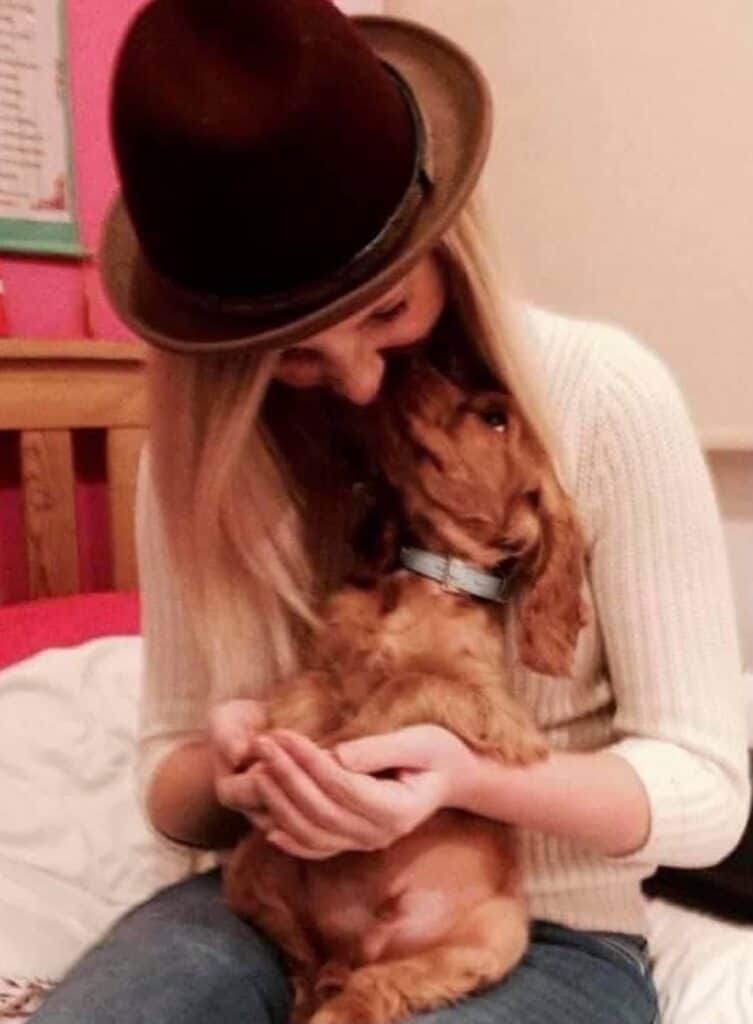
But I also think there’s another stage of pet grief… guilt.
Whether your dog has gone missing, died in a traumatic accident or was put to sleep like Kobie, we can tear ourselves apart with guilt over what we should or shouldn’t have done.
“If only we’d done this..”
“If only we hadn’t done this…”
“Should we have got a second opinion?”
“Shouldn’t we have known he was so poorly?”
“How did I miss this?”
The questions we can ask ourselves are endless and relentless. But ultimately, not very helpful. And then there’s the horribly guilty thought that life (in some weird way) might be a little less stressful now they’re gone if you have a dog that may not have been the easiest…
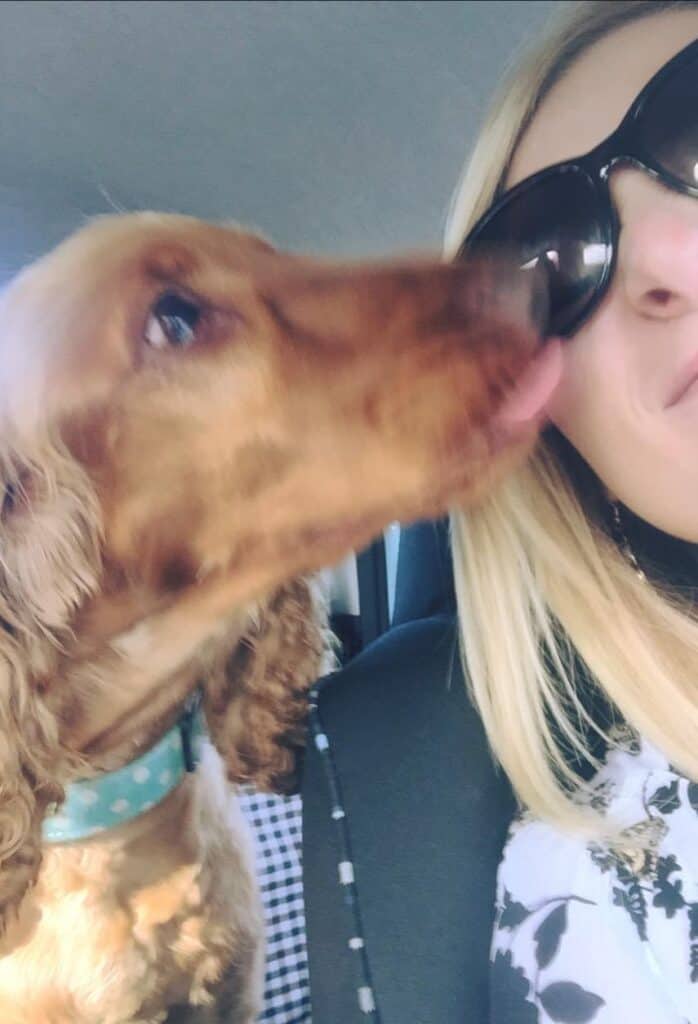
Let me explain…
With Kobie, he came so far with his behaviour issues. When he first came to me, he was reactive to everything. Walks were incredibly stressful. Going out in public was a no-no. His separation was so bad that he once ate part of my wall when left! And he pulled so hard, he cut all my hands to shreds. He saw many leading experts and we worked hard on all the advice given to us. By the time he left us, he could go on group walks with other dogs, and days out with us. He came with me to pubs and cafes and could chill. He could go off lead happily in certain places and walk nicely on the lead, and he could be left at home happily snoozing.
But day to day, there was stuff we managed for him without even really thinking about it. For example, he would struggle walking straight out of our front door as he would find it stressful. So we would pop him in the car and drive him two minutes down the road, where he would get out of the car relaxed, happy and excited for his walk.
If our garden door was open, he could run out barking at absolutely nothing, winding himself up more and more. So again, we managed it. We often didn’t have the door wide open as he would relax so much more without that.
Kobie was a much happier dog on medication, and it enabled him to go to more places, and have a happier life. Behaviour medication still sadly gets a stigma at times, which is sad. But if you looked at my boy zooming around being a crazy Spaniel, you wouldn’t see a dog on drugs. You’d see a dog living his best life. But even on medication and alongside working with him on a daily basis, before me and my husband went somewhere new for a walk, we often had to discuss what it would be like there. What are the potential triggers for Kobie? Where are the exits if we need to get out of here? If he can’t manage, what’s the plan?
I remember one day we planned a day out for my birthday to the Cotswolds and Kobie was having a particularly hard day. In hindsight, we should have listened to our gut and not taken him with us, but hindsight is a wonderful thing. The day was full of stress, tears and frustration. But do you know what? I would redo that day in a heartbeat now.
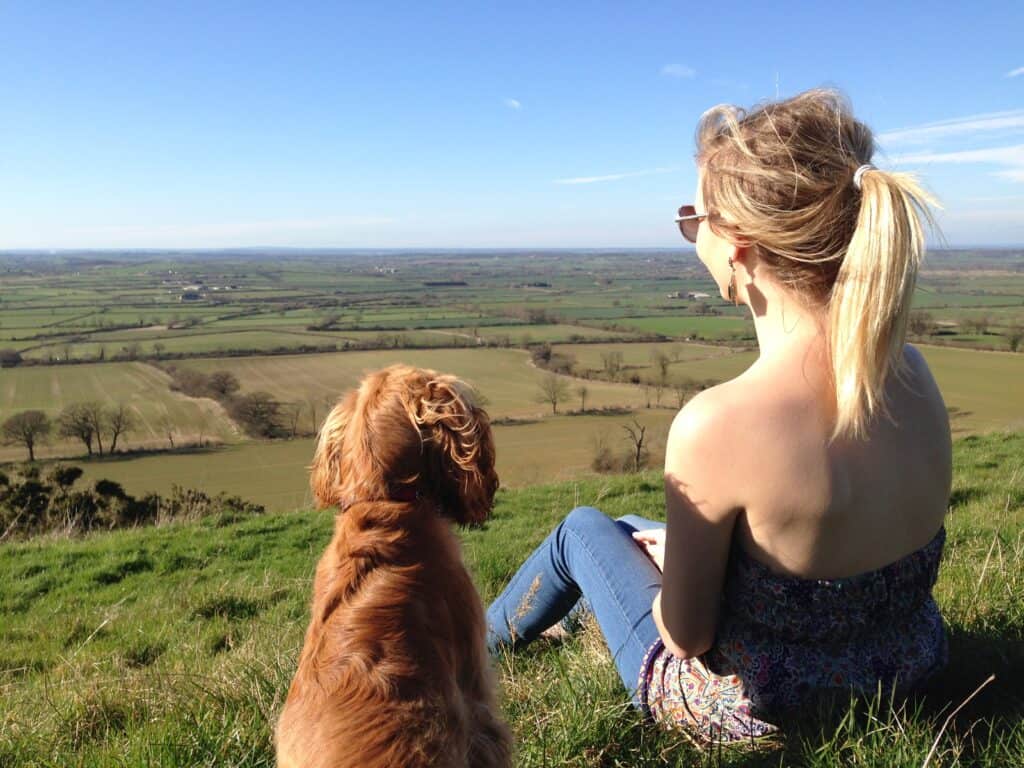
But with Bailey, we can generally take him anywhere and everywhere (half the time, I forget he’s there!). Sure, it’s taken a lot of training to do this. He wasn’t an easy teenager (are any Spaniels?!) But it’s easier and often less stressful.
With Kobie suddenly gone, it’s made us realise how much day-to-day management we still did for him, even with how far he came in his behaviour journey. And, in a way, how much freer we are now, which obviously makes me feel horribly guilty. With a baby soon on the way, I know it will be easier managing the baby with just Bailey. But I also know Kobie would have been the best big brother, and I absolutely wouldn’t choose to have it this way.
I know guilt is just another emotion that I’m experiencing as part of my grieving process, and that’s ok. I think when you’re lucky enough to share your life with a dog that’s a bit more complex, it’s natural to grieve for the dog you wished you may have had, be sad about the things they can’t do, and sometimes feel frustrated your dog can’t do certain things that your friends’ dogs can. I think that personally makes you human. However, when they’re suddenly taken from you, all those annoying, frustrating traits are the ones you miss the most.
In the morning, Kobie used to make the highest pitch noise of excitement when he saw us. Then he’d empty the toy basket, bringing us them all one by one. It actually gave me a headache and we would be like, “For goodness sake, Kobie. Shush.” But now our mornings are quiet and I think we miss that earache-inducing sound the most. So if you feel guilty, I do understand it. And that’s ok. It doesn’t mean we loved our special, beautiful, complex dogs any less.
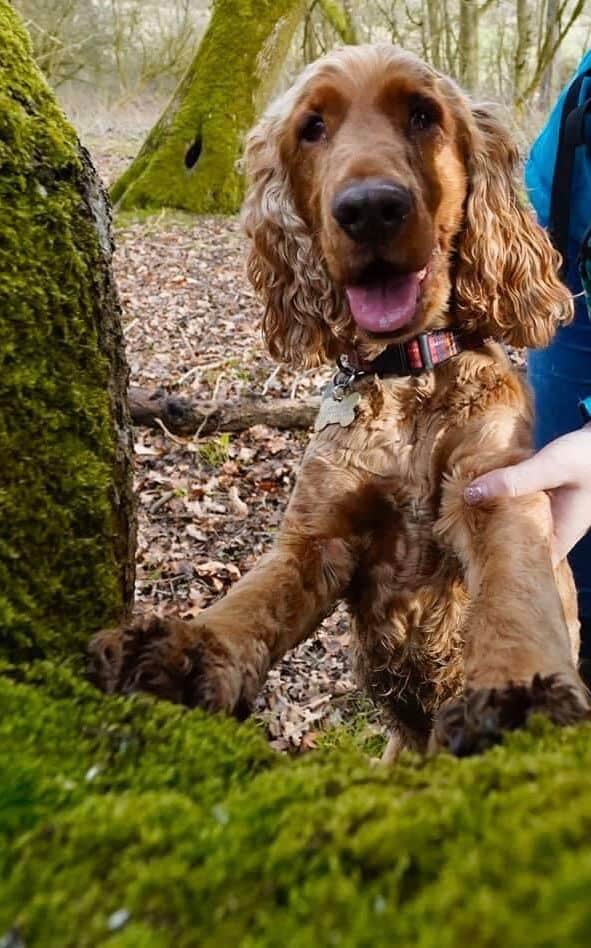
Do our dogs show signs of loss?
As social animals, our dogs become highly attached to those around them. So, losing another dog can bring instability and disrupt the routine they’ve become used to. They’re also highly emotionally intelligent, so they’re bound to pick up on the changes in our feelings and behaviour. All of this can manifest as pet grief.
Here are some signs your dog may be grieving:
- Seeking behaviour. Your dog may return to their companion’s favourite sleeping or resting place as they repeatedly look for their pal.
- Changes to appetite. Many dogs will eat less after losing their beloved best friend. Your surviving pet may have gotten so used to following your other dog to the dog bowl that it may disrupt their usual feeding routine.
- Increased whining or whimpering. Dogs (especially Spaniels, as we all know!) are capable of expressing their emotions, and you may notice an increase in whining or whimpering following the loss of their companion.
- Changes in sleeping. Your dog might be sleeping more than usual. They could also start pacing or hiding, or struggling to sleep where they did previously.
- Changes in being able to cope with separation. Your dog may struggle initially to be left alone if they’re used to being left with another dog. Comfort them, give them time and work on it slowly.
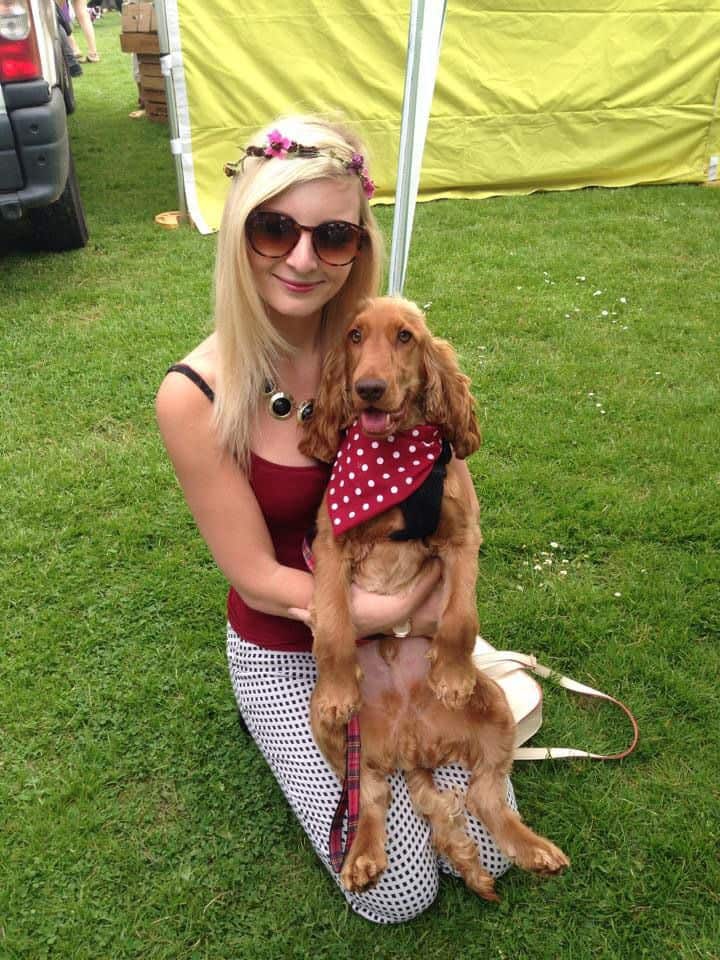
How can you help your grieving pet?
As a huge part of your family that’s also grieving, you’ll no doubt want to give your dog the love and care that they deserve. Whilst it feels incredibly difficult, there are several things you can do to help…
- Allow yourself and your dog time to adjust to the current situation and focus on finding a new ‘normal.’ There’s no rush. Cry if you need to, laugh when you want to. Remember all the great times you shared together. It’s ok to smile; it doesn’t mean you don’t miss them.
- Try to keep to your routine as much as possible. It’s tempting to want to shake things up. But dogs often benefit from a routine, so try to carry on with your existing routine as much as you can. Bailey has been enjoying extra walks with us, and we’ve increased his group walks with his amazing walkers, so he can have more time with other dogs, which he’s loving.
- Notice if your dog is struggling. As expected, Bailey initially struggled to cope by himself, and even if I went upstairs for 5 minutes, he howled and cried. So, with my dog behaviour head on, I rewatched all the videos on our camera, slowed them down and saw where he was struggling. I then adapted our plan, and we’re now mostly at 3-4 hours, where he can happily be left on his own with no anxiety or howling.
- Some extra love never goes amiss! Bailey is currently sleeping on our bed at night as he’s been so used to snuggling up to Kobie and isn’t ready to be alone at night. And that’s totally ok! Safety and social sleeping are key for him right now, and it’s helping us to succeed with separation during the day. Soon, I’ll start moving him slowly back out of our room as his new little human brother will be arriving in the spring. But for now, we’re just taking one day at a time and giving him what he needs.
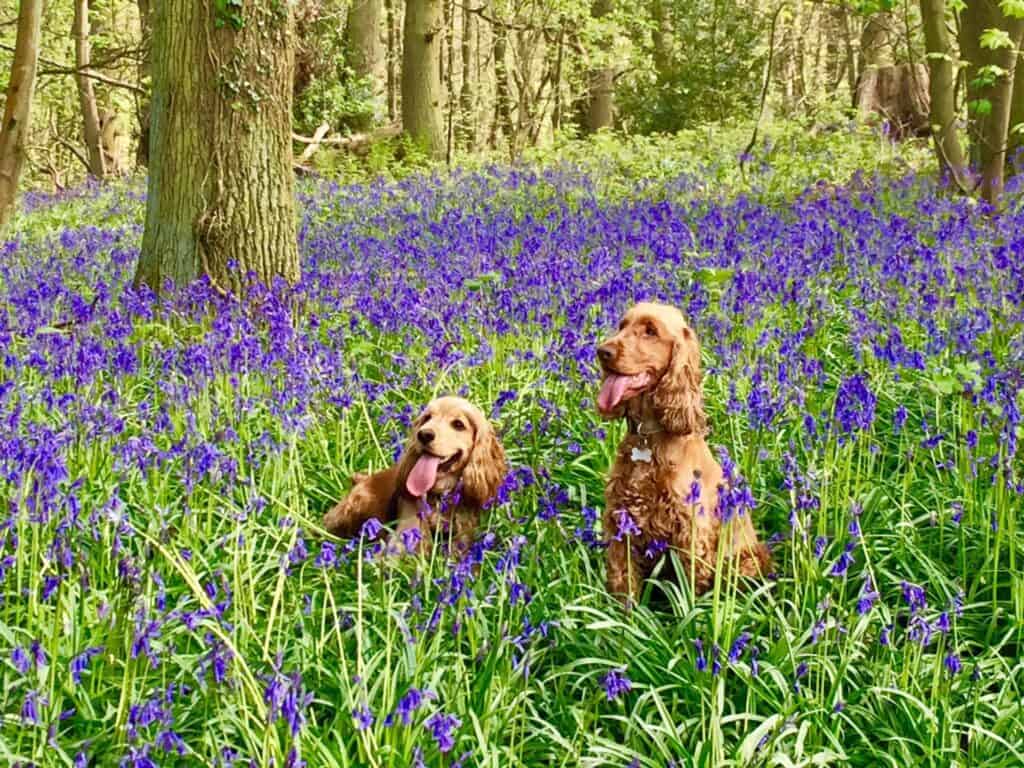
Some final thoughts…
As upsetting as this blog was to write, I hope it offers some helpful, practical advice to help you cope with the loss of your beloved best friend.
Kobie was and always will be my absolute heart dog. I am beyond grateful he came into my life. He was my biggest teacher, and he has enabled me to help support so many other Spaniel owners. Thanks to Kobie, so many Spaniels and their owners have been helped and understood through kind and compassionate training. It’s amazing to see the impact Kobie has had and the legacy he’s created all over the world following his passing.
For now, we’ll continue to help Bailey adapt and get ready for the arrival of our little boy. Kobie would have been the best big brother and would have loved our little boy to bits, and I’ll make sure we tell him all about Kobie’s antics and adventures as he grows up.
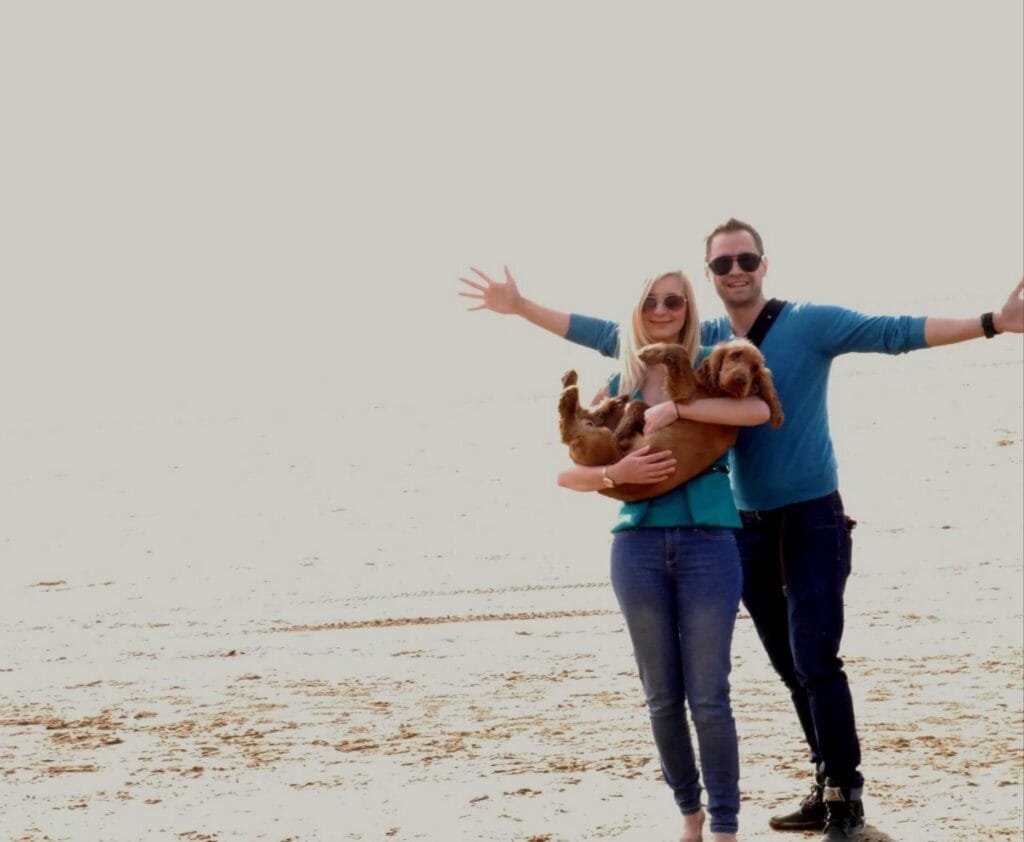
If you’re struggling to cope with the loss of your pet, you may find it helpful to contact Blue Cross Pet Bereavement Support Service.
They have a fully trained support service that’s free and confidential. You can find all the details here.
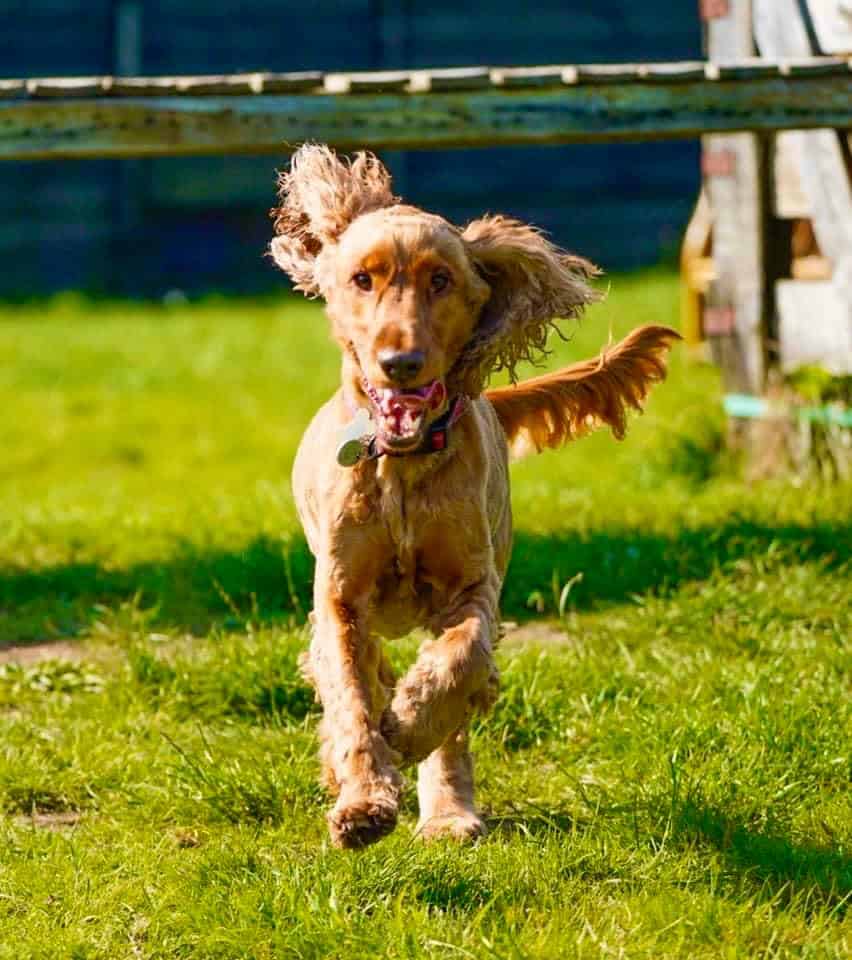

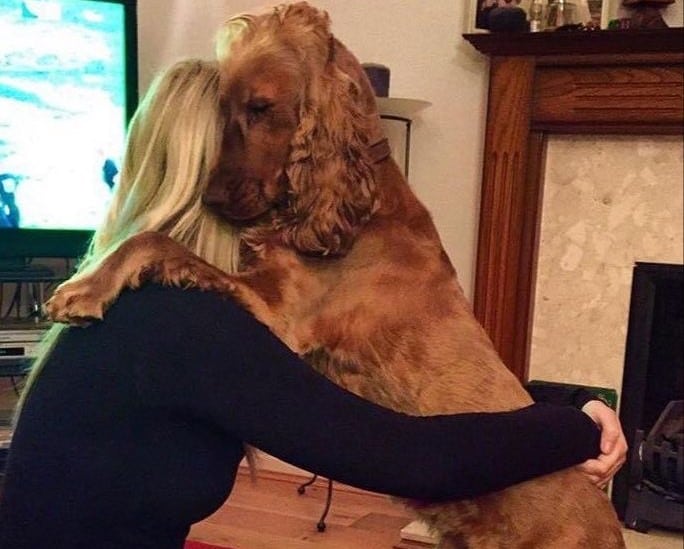
Recent Comments